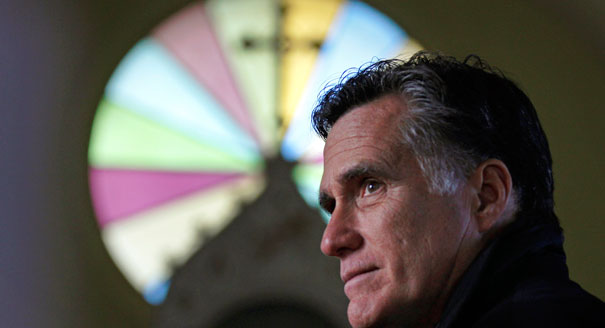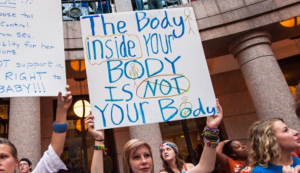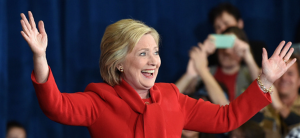In today’s Wall Street Journal, Daniel Henninger has a smart (and hopefully prescient) piece on Mitt Romney’s strength with evangelicals. While no one can predict Tuesday’s outcome with any certainty (Get to the polls, people! Get to the polls!), I feel confident that Mitt will do very, very well with evangelicals — outperforming John McCain and even perhaps outperforming evangelical George W. Bush, in spite of the alleged increase in “post-partisan” evangelical sentiment. I can think of five reasons why.
1. The radicalism of Barack Obama (abortion): I’ve written about this before, but if there is one issue that still unites evangelicals — even evangelicals who consider themselves moderate or possibly even progressive — it’s life. Simply put, the issue absolutely key to evangelical support for Republican candidates. I’ve seen confidential polling numbers (not from the Romney campaign, but predating this presidential cycle) indicating that if abortion were removed from the table as an issue, evangelical support for Republicans would simply collapse. Republicans would lose their base. In other words, while Christians often embrace opposing views about economics, war, and social safety nets, the case for life is so strong — so morally fundamental and biblically sound — they simply can’t grasp the idea of pulling the lever for a man or woman whose moral compass leads them to often not just permit the intentional mass killing of innocent children in the womb but also to demand that the state subsidize that mass killing.
And make no mistake, Barack Obama is radically pro-abortion. He was willing to shut down the government to keep funding Planned Parenthood (the nation’s largest abortion provider), he imposed a contraceptive/abortifacient mandate even on religious employers, he voted against the born-alive infant protection act, and his party’s platform demands direct taxpayer funding for abortion. I’m aware of no legal limit on abortion that Barack Obama supports. How can a Christian vote for such a man?
2. The radicalism of Barack Obama (religious liberty): It’s sad and simple truth is that for most evangelicals religious liberty simply isn’t a policy priority. Sure, they get outraged when they hear that student groups can’t meet in empty classrooms or that a prayer group can’t meet in a private home, but when any given case in their community is over, evangelicals tend to move on to other issues. Then came the administration’s HHS guidelines. At first perceived to be largely a “Catholic issue,” thanks to clear communication from prominent evangelicals, the extent of the administration power grab became painfully clear. Simply put, if the HHS regulations stand, the entire concept of religious liberty as a foundational American liberty is upended.
3. The values of Mitt Romney: Despite the fact that Mitt has been running for president for some time, many evangelicals felt like they didn’t really know his character — his core values. In large part this is because Mitt’s competitors tried to run to his right, and as they did they hurled invective at Mitt, questioning his commitment to life, his commitment to marriage, and even his character and decency. While this is par for the course in hard-fought primaries, it had a lingering effect — until Mitt’s friends came forward in bunches to testify to his acts of compassion and kindness. Emails and stories raced around church groups, and the story they told was clear: Mitt is a good man, and he’s a humble man. Mitt Romney became first acceptable, then — ultimately — admirable.
4. The Paul Ryan pick: While Heninger notes the importance of the Ryan pick, most in the MSM — so focused on his budget — failed to grasp the clear message it sent to evangelical voters from a man they’d been told was “wobbly.” In one stroke, Mitt told economic conservatives he was serious about the budget and values voters that he was serious about life. He was going to run a “choice” campaign, not a referendum campaign, and Mitt had clearly chosen life.
5. The vicious opposition: As the Left bared its claws and tore into Mitt — including his stay-at-home wife, his squeaky clean image, and his “1950s” values — many evangelicals felt their values were being mocked (again). Even working evangelical moms couldn’t abide the attacks on Ann Romney, and for millions upon millions of evangelical voters, being “squeaky clean” is unmistakably a virtue, not a vice. In other words, Mormon Mitt Romney became “one of us” because the media made him one of us.
The bottom line: While I’m not making my precise election outcome prediction (that’s coming Monday afternoon, with electoral map and popular vote estimates), I do think evangelicals will turn out for Mitt in numbers that will surprise the MSM and may well put him over the top.
In other words, we’re all Evangelicals for Mitt now.










